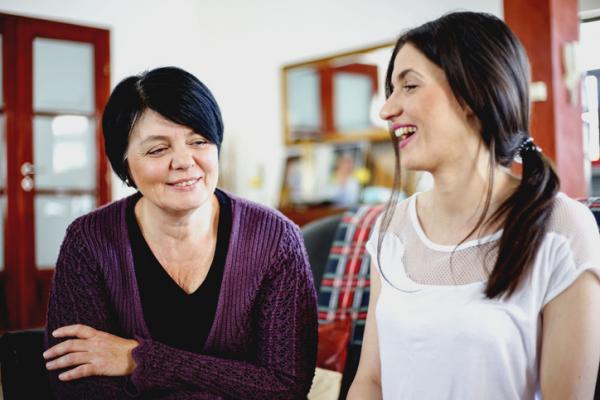Some people believe that you have to be married or in a long-term relationship to be a foster carer, but this simply isn’t true. In fact, some of our most valued foster carers are single parents. Sometimes they have children of their own, though they might simply want to give a child a stable home.
If you’re a single person who is thinking of becoming a foster carer – don’t let your relationship status hold you back. Whether you’re male or female, straight or gay, in your 30s or your 60s; as long as you have some experience of raising or looking after children and can offer a safe and stable home, chances are you’ll make a brilliant foster carer.
In our experience, single foster carers are driven, focused and able to become fully-committed to those in their care. They’re also flexible, and may be able to offer alternative forms of foster care, such as respite, emergency and specialist care.
Fostering as a single person gives you the opportunity to receive financial support for each child you take into your care, on top of any working tax credits or child support payments you already receive. Be sure to read our guide on fostering allowance for more information about the financial support available to single-parent foster families.
Our foster carers set the best examples for others who may be considering becoming a foster carer. Like Carole, a single foster carer who has been looking after children for more than 35 years.

Why did you decide to become a foster carer?
I have always loved caring for small children, and after I had my own children and they had moved out, I thought I would enjoy helping others who needed a place to stay. I get so much pleasure in seeing how the children grow in self-confidence, and that the love I give them can give them the strength to move on to their new forever family.
What did the application process involve and how did you feel after the initial visit?
I first contacted NFA 18 years ago, and I was very happy with the information they gave me. The process can seem very scary at first, but I was very lucky with the people I had to deal with.
There is a lot of work that goes into your assessment, including a close look at your own family history, how you were brought up and what your relationship was like with your parents. This can be very hard to go through if, like me, you lost your parents at a young age, but the lady who handled my assessment helped me to cope with the difficult memories this brought up.
It can seem like it takes a long time before you’re approved, but this is for the safety of the children, so it’s an important part of the overall process.
How did you feel when you were notified of your first foster care placement?
Excited, as this is what I had been waiting for, but also a little nervous because you really don’t know what will happen once the child is in your home.
As a single-parent foster carer, what kind of help and support do you find most useful?
My family are always there to help and support me with everything that I need, with all of the children that I look after. I also maintain close relationships will all the social service workers I deal with, and I know I can count on them for whatever help and support I need. Also, a close community of like-minded foster carers is essential, and this is something that NFA certainly helps with.
What would you say is the most challenging aspect of fostering as a single carer?
If you have two children from different local authorities, it can cause problems for contact and meetings, as being on your own limits the amount of time you can devote to these kinds of tasks and appointments. That’s why it’s so important to maintain close relationships with local authority social workers, as they can help with organisation.
Do you have any other input and advice for single parents considering foster care?
If you feel that you can help and love any child who comes to you, then being a single carer makes no difference whatsoever to your ability to foster. There is no better feeling than when you see how much your love can help a vulnerable child in need, so follow your feelings, be confident and take your first step towards becoming a foster carer.
There is much to consider – starting with the type of fostering that would be most appropriate for you and your lifestyle.
As a foster carer, you need to dedicate lots of time to look after the children in your care. This means that, as a single person, you may not be eligible to foster if you want to continue working on a full-time basis. However, even if you want to continue working full time, you still may be able to help children by becoming a respite foster carer. This is when you look after a child on a short-term basis (often for as little as one weekend at a time), giving other full-time carers a break from their responsibilities.
In many cases, single parents often don’t work full-time 9-to-5 jobs because of childcare commitments, making them excellent candidates for foster carers. Instead of balancing family life with a part-time job, fostering gives you the financial support you need to raise your family, as well as the rewards of helping to give a home to a child in need.
Whatever your circumstances, we’d love to hear from you if you’re at all interested in becoming a full-time or respite foster carer. Our team will work with you to devise a strategy that could see you become a successful foster carer, regardless of whether you work full-time or have children of your own. Make an enquiry today.